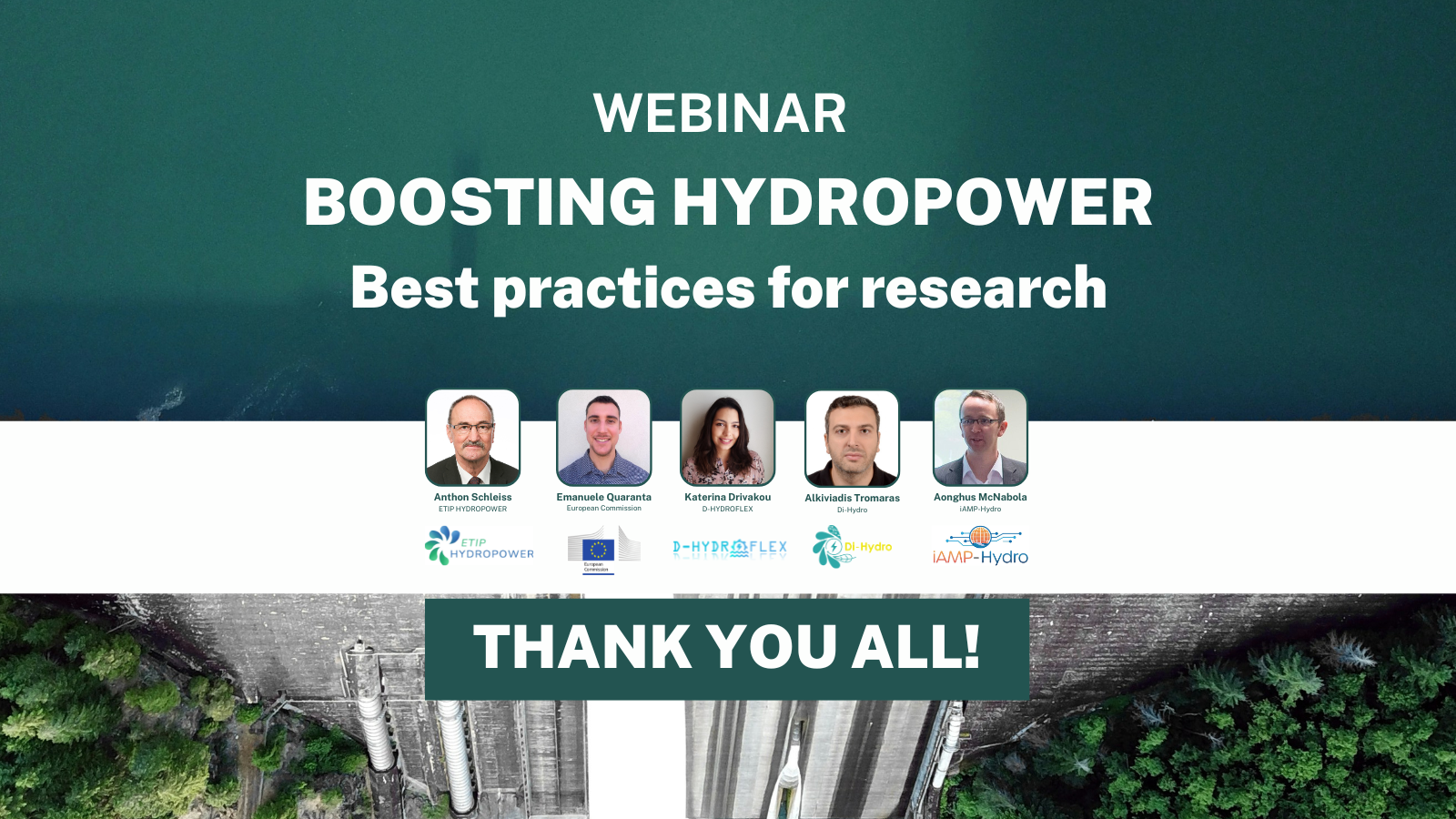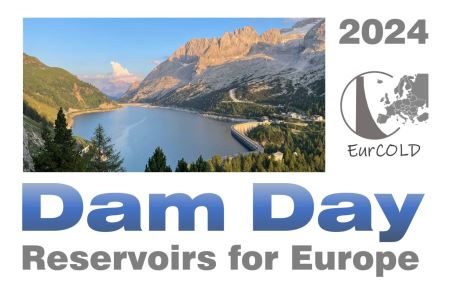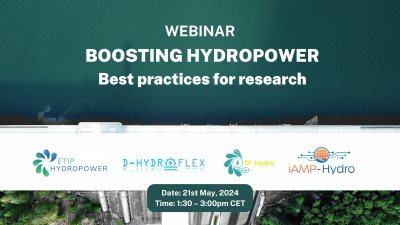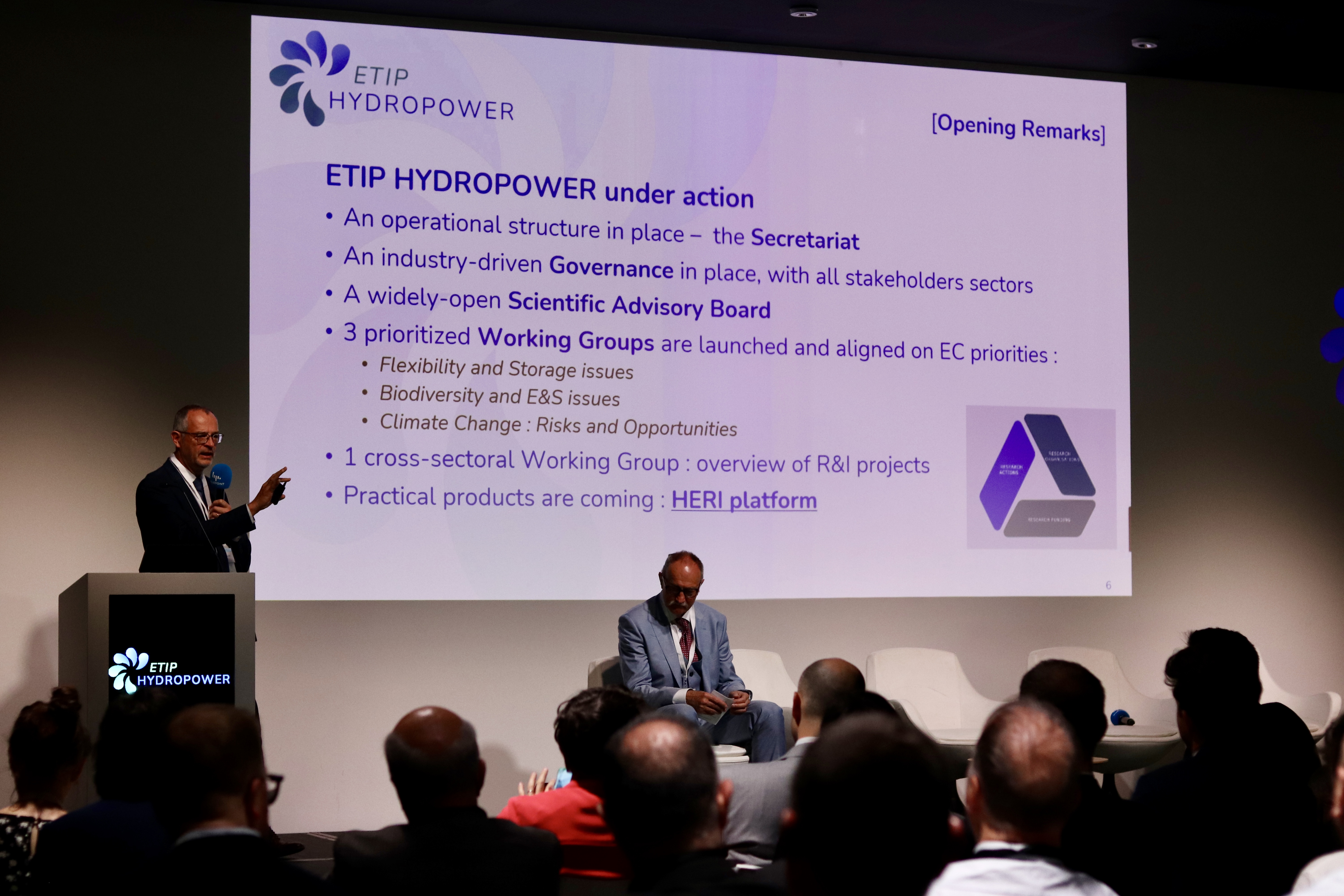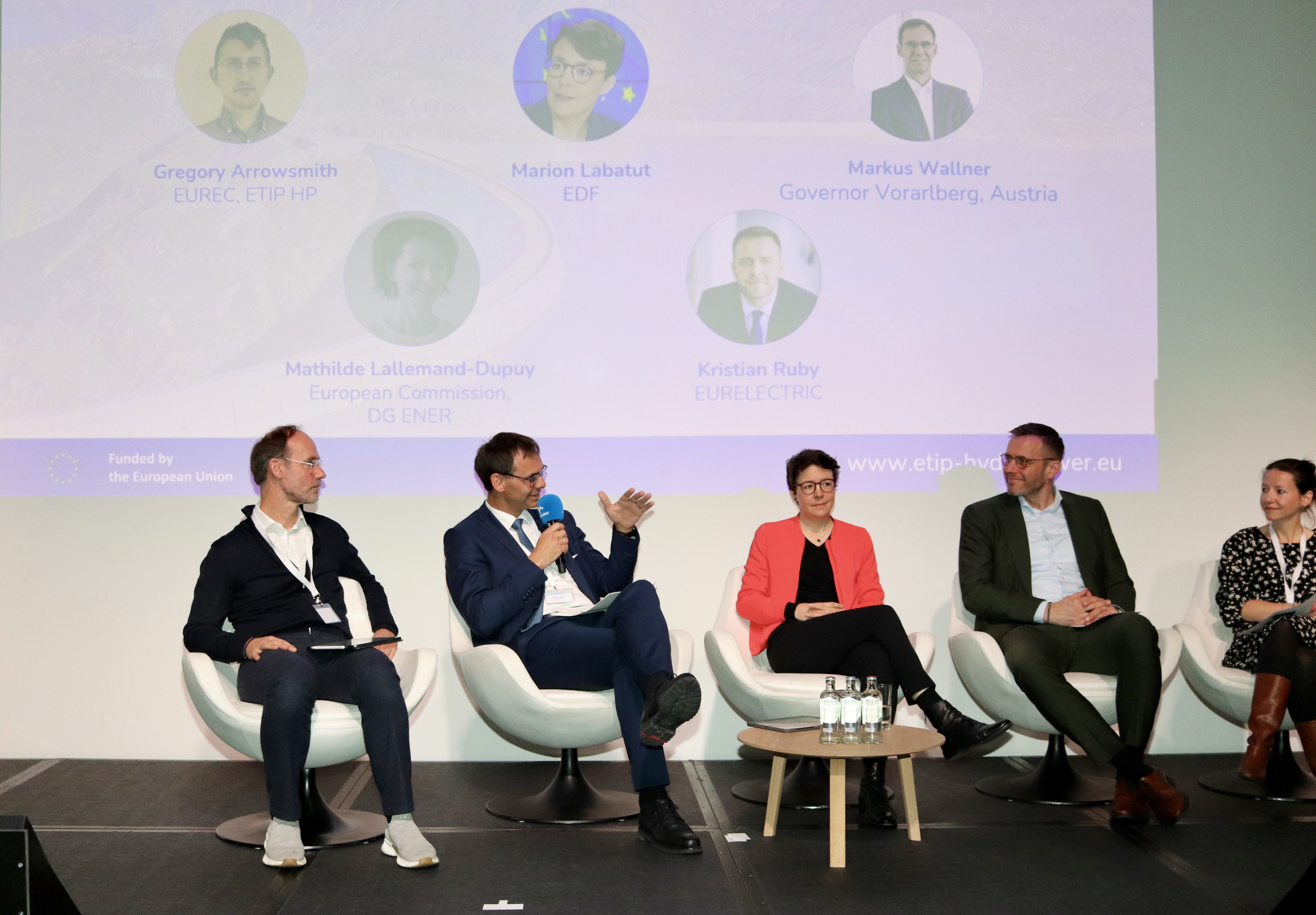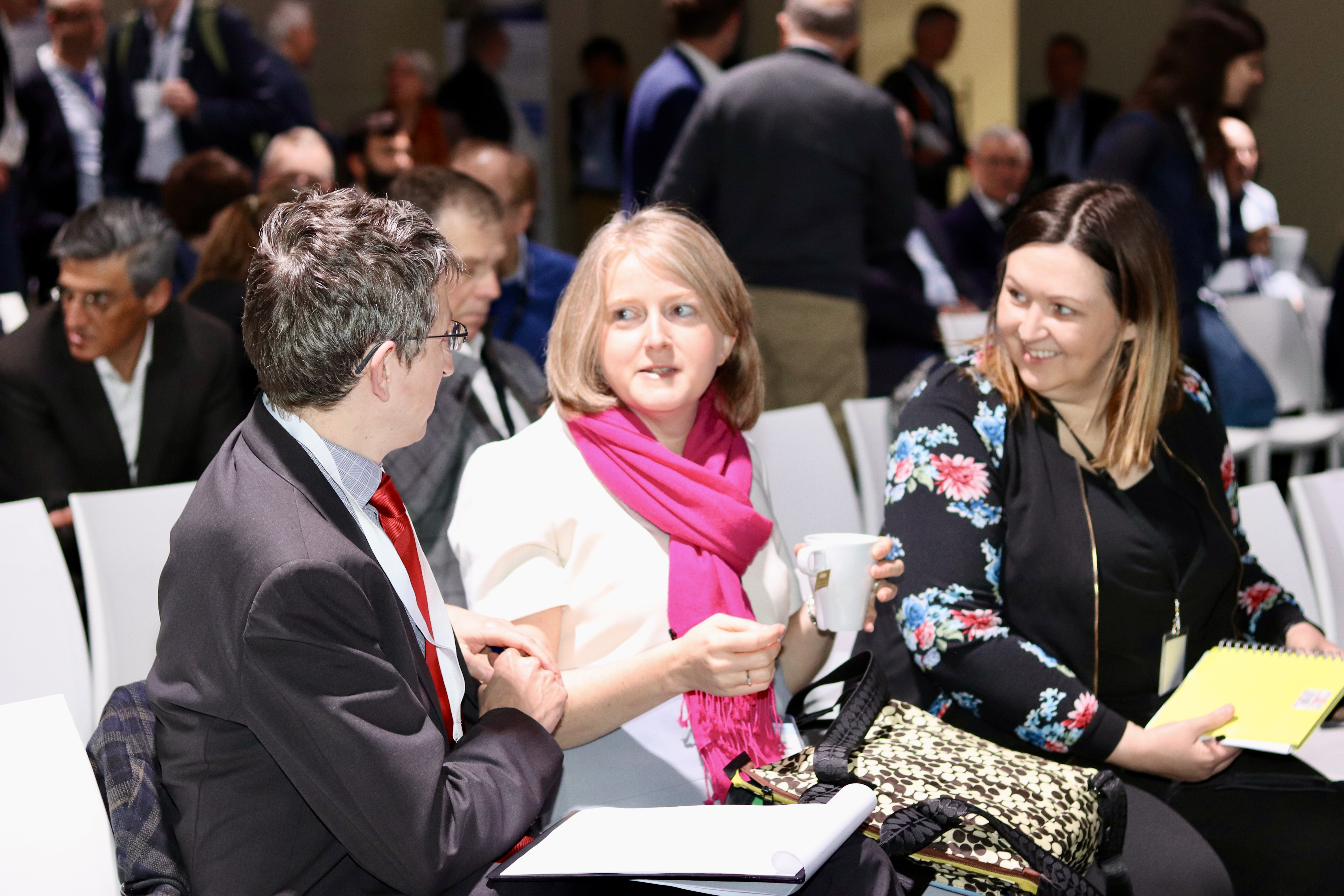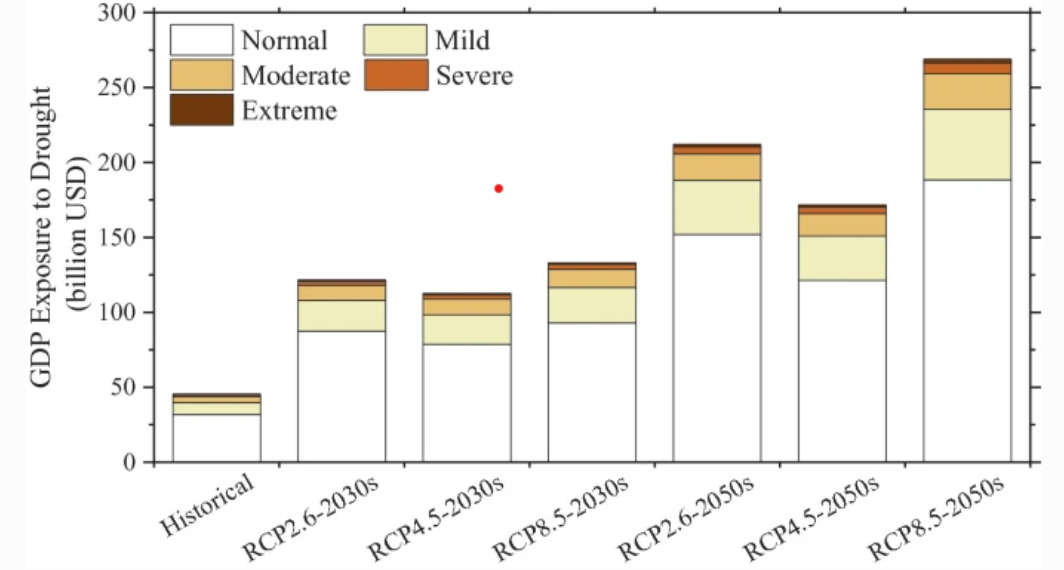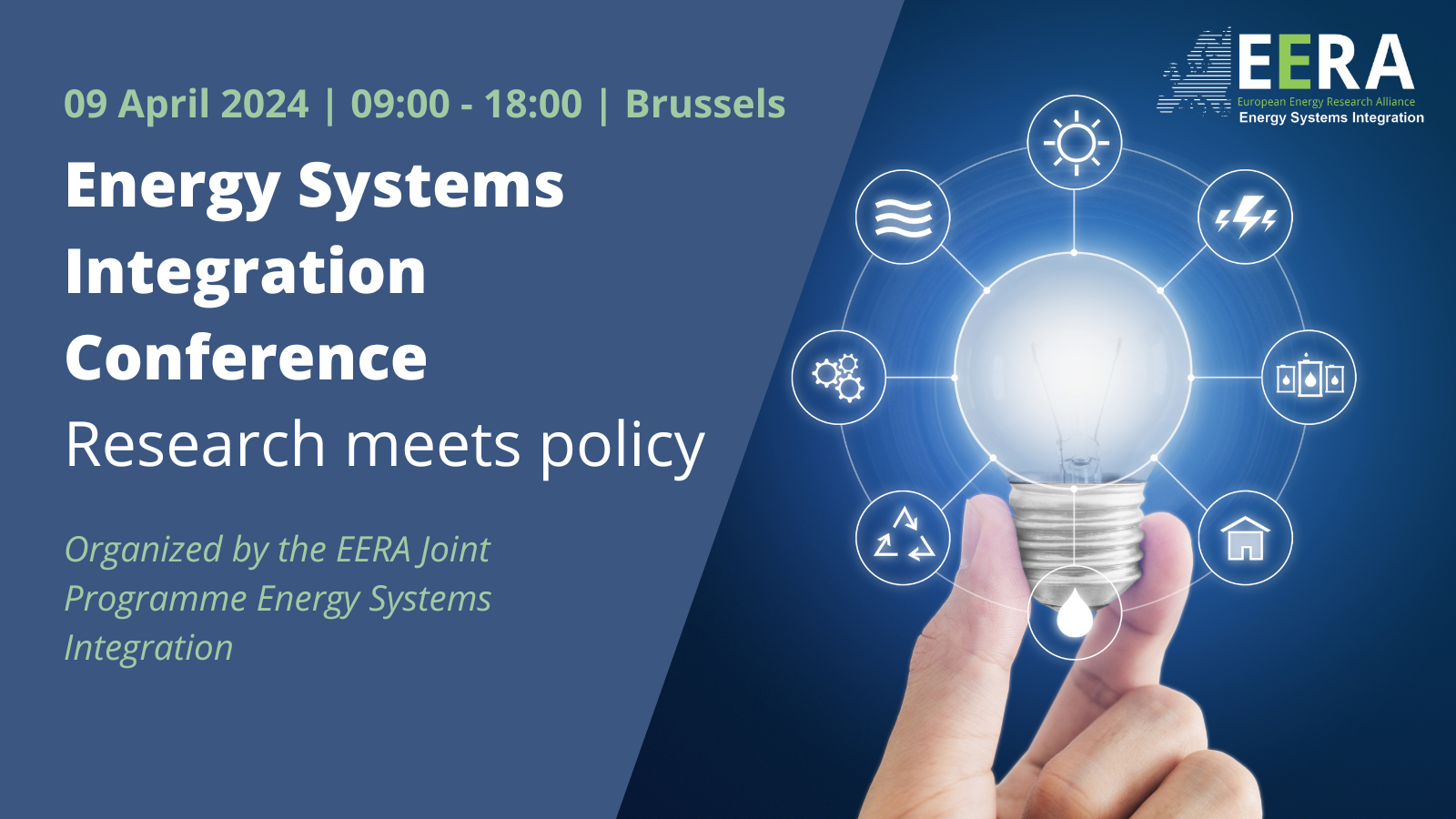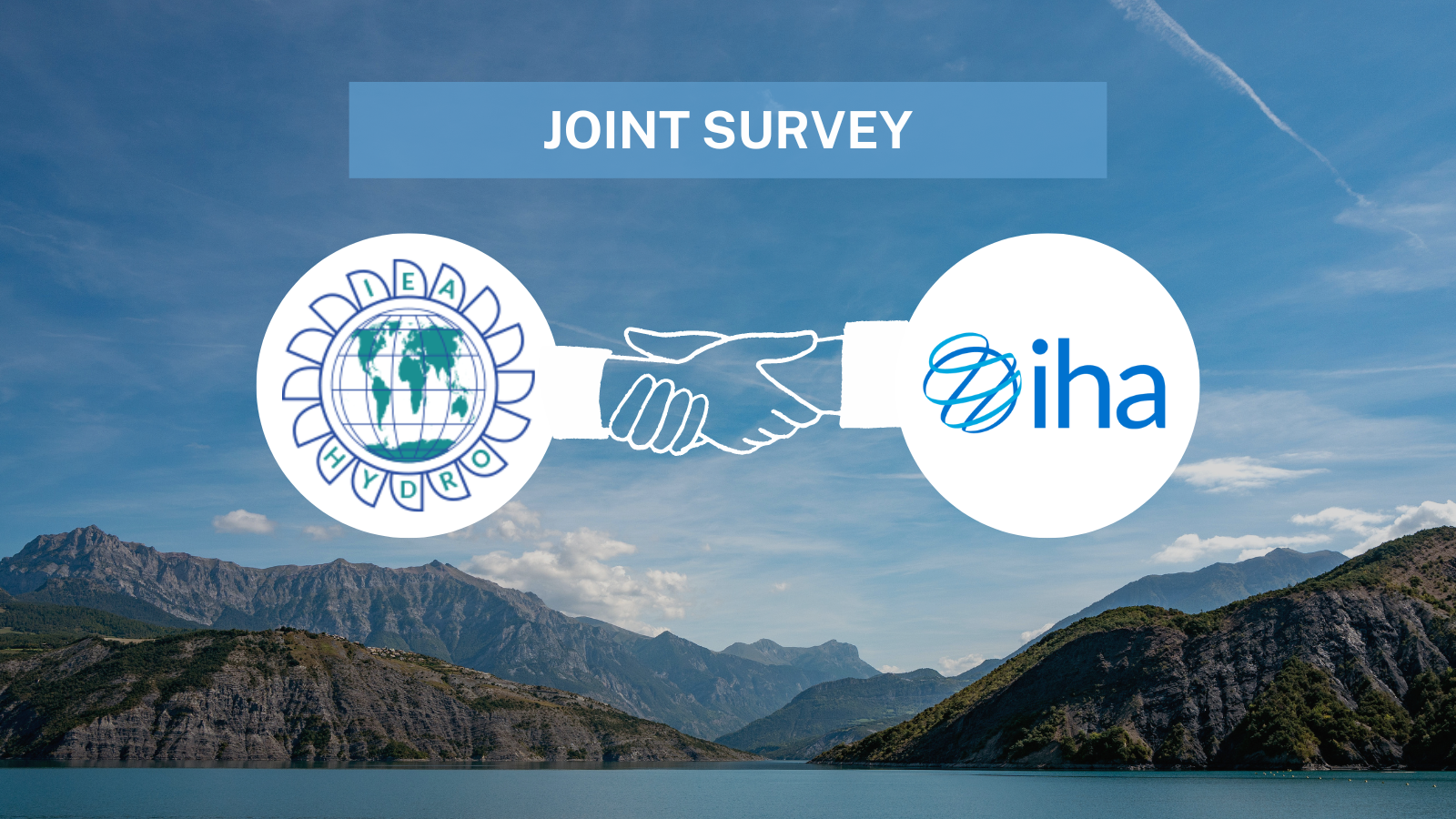UNIFYING THE VOICES OF HYDROPOWER
ETIP HYDROPOWER at the #EUGreenWeek Conference
ETIP HYDROPOWER actively engaged at the recent #EUGreenWeek Conference. As a key figure in the hydropower sector and a proud contributor to the #WaterWiseEU campaign, we recognize the critical role hydropower can play in tackling pressing water challenges like floods and water scarcity. From the session "Water resilient EU – Key challenges, definition and vision", we could highlight the following key takeaways:
- A call for unified action: Maroš Šefčovič emphasized the need for joint efforts and broader stakeholder dialogue to achieve water resilience by 2050.
- Addressing water extremes: Lidia Brito highlighted the dual threats of water scarcity and excess, urging immediate action to prioritize water for environmental and human well-being.
- Strengthening legal frameworks: Alain Maron stressed the importance of robust legal frameworks across Europe to ensure equitable water distribution and water cycle restoration.
- Sharing knowledge and best practices: Anikó Raisz underlined the significance of inter-sectoral collaboration and knowledge sharing.
- Water for a competitive future: Pietro Francesco De Lotto discussed the centrality of water for industrial competitiveness and advocated for a renewed European water policy agenda.
ETIP HYDROPOWER, through our commitment to innovation and deep industry knowledge, is positioned to contribute significantly to more effective water resource management, flood mitigation, and ensuring a stable water supply for all.
Our focus areas include linked to the Brussels Conference 2024 are the followings:
- Enhancing and disseminating research and innovation in hydropower.
- Aligning industry strategies with EU climate and energy policies.
- Collaborating with stakeholders to foster understanding and overcome innovation barriers.
By working together, we can build a water-resilient Europe. Let's keep innovating and collaborating for a sustainable future!
#ETIPHydropower #Hydropower #WaterResilience #Sustainability #Innovation #ClimateAction #EUGreenWeek #WaterWiseEU
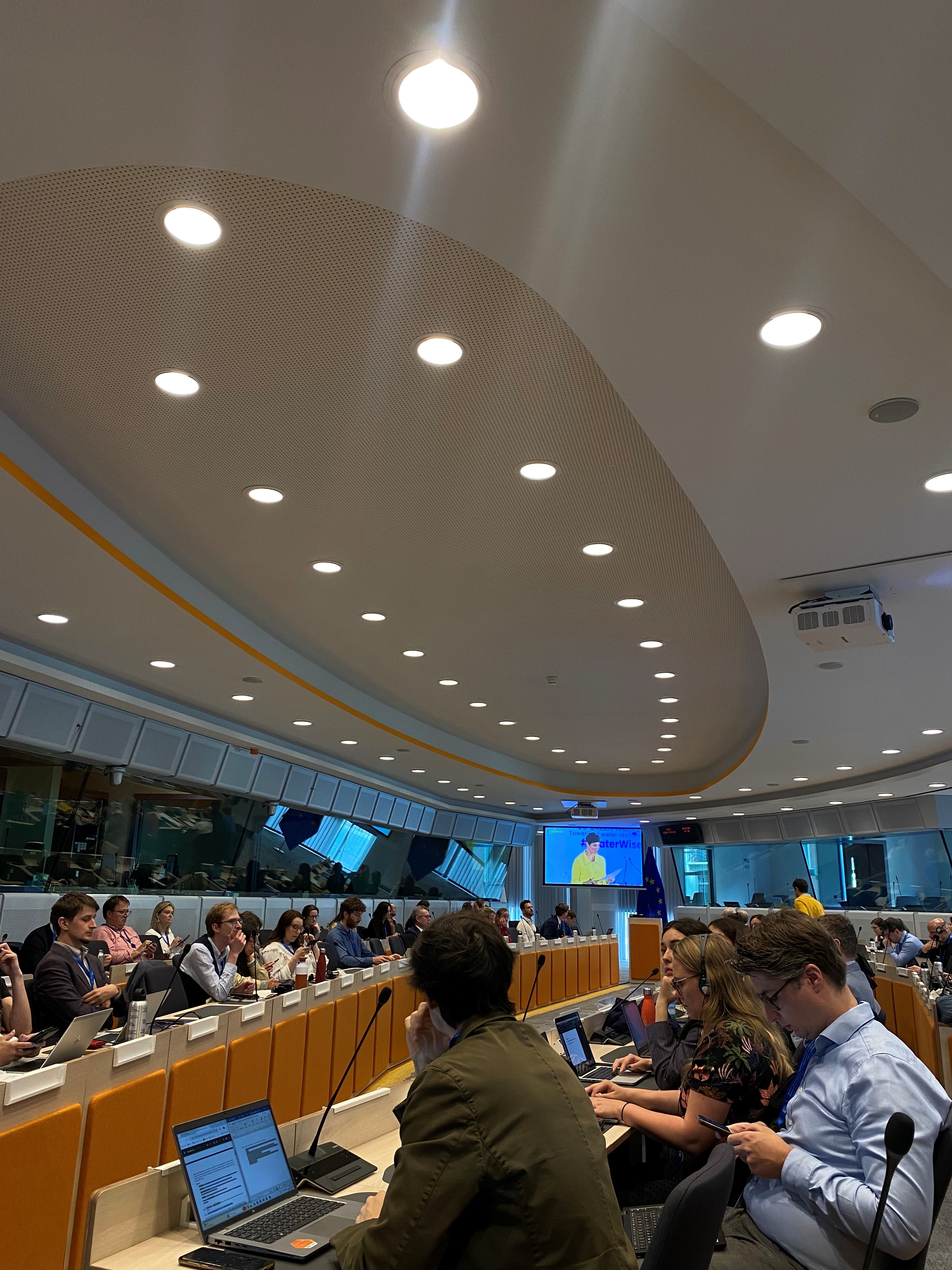
Thank You to Over 100 Participants for Joining Our Webinar!ETIP HYDROPOWER hosted a webinar, "Boosting Hydropower with Good Practices for Research," showcasing advancements in the hydropower field. The event brought together key players and highlighted promising initiatives leveraging digital solutions to enhance hydropower efficiency and sustainability. Emanuele Quaranta from the European Commission provided an overview of current hydropower research activities, mentioning that the European Union allocates an average of €10 million annually to EU-based hydropower projects. Therefore, Anton Schleiss emphasized ETIP HYDROPOWER's role in unifying the sector and presenting a single voice on key issues. The webinar featured presentations from three key projects focused on digitalization within the hydropower sector:
These initiatives represent significant steps forward in unlocking hydropower's full potential as a clean and reliable renewable energy source for the EU. By harnessing digital technologies, these projects aim to propel efficiency, optimize resource utilization, and pave the way for a sustainable energy future for Europe. Thank you to our amazing community and stay updated with more exciting developments coming soon! For more information: Speaker slides: ETIP HYDROPOWER, Emanuele Quaranta (EC), Katerina Drivakou, Alkiviadis Tromaras, Aonghus McNabola #Hydropower #Sustainability #RenewableEnergy #Innovation #CleanEnergy #GreenTech #ClimateAction #EUFunding #EnergyTransition #WaterPower |
ICOLD European Club EstablishesIn an effort to highlight the vital role of dams and reservoirs in Europe's economic, social, and environmental landscape, the ICOLD European Club has inaugurated the inaugural "Dam Day - Reservoirs for Europe" celebrations. This initiative, supported by members of the ICOLD European National Committee, aims to underscore the myriad benefits of dams and reservoirs while fostering greater public understanding and appreciation. Scheduled to take place for a period before and after May 29th, designated as the official Dam Day this year's celebrations mark the commencement of an annual tradition. Set to debut on May 29th, 2024, "Dam Day - Reservoirs for Europe" seeks to honor the significant contributions of dams and reservoirs to the sustainable development and prosperity of European nations. The concept of "Dam Day" was conceived and championed by EurCOLD (European Club of the International Commission on Large Dams – ICOLD), following a proposal by the Italian Committee on Large Dams in June 2023. Its establishment in March 2024 reflects a collective commitment to raising public awareness about the positive impact of dams and reservoirs on social, economic, and environmental fronts.
|
WEBINAR: Boosting hydropower with good practices for researchGet ready for the upcoming webinar featuring three newly EU-funded projects along with ETIP Hydropower next 21 May 2024 (13:30 – 15:00 CET)! Europe has significant hydropower potential due to its diverse altitude landscape and surrounding seas. However, only a small fraction (13.8%) of the EU's net electricity generation comes from hydropower plants. This low utilization is primarily attributed to inadequate digital management, handling, and maintenance of hydropower plants compared to other energy generation methods. In the webinar, the following projects will be presented: Katerina DRIVAKOU (Technical Coordinator, UBITECH) will talk on behalf of D-HYDROFLEX, a project that aims to develop a toolkit for digitally renovating existing hydroelectric power plants based on sensors, digital twins, AI algorithms, hybridization modelling (power-to-hydrogen), cloud-edge computing, and image processing. Validation will take place in 7 hydro plants across Europe, addressing challenges posed by the European Green Deal and the Digital Decade Policy Programme 2030. Alkiviadis TROMARAS (Project Coordinator, CERTH) will represent Di-Hydro an initiative that aims to digitize hydropower plants by developing smart devices and data acquisition techniques. Digital twins will facilitate real-time data exchange, enabling optimal coordination of power generation considering societal, weather, water flow, environmental, and biodiversity data. Aonghus MCNABOLA (Project Coordinator, Trinity College Dublin) will speak for iAMP-Hydro, a project that focuses on developing digital solutions to address the evolving needs of the EU hydropower sector. With a significant portion of hydro generation assets slated for potential upgrades by 2030, the project aligns closely with energy sustainability and digital transformation imperatives. By harnessing the collective capabilities of diverse partners, iAMP-Hydro seeks to unlock pathways for optimizing asset performance, minimizing environmental impact, and fostering socio-economic development in communities served by hydropower facilities. In addition, we will count on the presence of Emanuele Quaranta who will provide the audience with an overview about research for hydropower on behalf of the European Commission. Anton Schleiss, as technical coordinator, will represent ETIP HYDROPOWER during the session.
|
BRUSSELS HYDROPOWER DAY 2024 – Catalysing Clean Energy TransitionETIP HYDROPOWER organised the second edition of the Brussels Hydropower Day last 16th April 2024 discussing opportunities and barriers affecting hydropower development in the framework of the energy transition considering uncertainties regarding the energy crisis, climate change and the market, as well as regulatory conditions. ETIP HYDROPOWER successfully organised the 2nd edition of the annual event “Brussels Hydropower Day” on 16th April 2024 under the title: “The important role of hydropower as a catalyst in the clean and safe energy transition under uncertainties”. This conference was held within the framework of the Sustainable Energy Days of the European Commission, and both the speakers and more than 190 participants (both online and offline) contributed to the interesting discussions, in the exciting event that brought together representatives of wide stakeholder groups in the hydropower sector and decision-makers in the European Commission working on relevant policy files concerning hydropower. OUTCOMES OF THE EVENTThe event was opened by Denis Aelbrecht, Deputy Technical Director for EDF and chair of the Governing Board of ETIP Hydropower and Bernd Biervert, Deputy Director of DG RDT C and Head of Unit for DG Research and Innovation at the Unit for Clean Energy Transition. This opening was followed by two keynote speeches. Kristian Ruby, Secretary General at EURELECTRIC, emphasized hydropower's pivotal role in the EU's sustainable success. He highlighted the imperative for clean electricity, projecting that by 2040 and 2050, over half of energy consumption must be from clean sources. Acknowledging the challenges, he stressed the importance of flexibility, citing hydropower's unique potential in stabilizing the power system. With hydropower as the EU's second largest electricity source and a key player in biodiversity conservation, he advocated for a stable regulatory framework to unlock its full potential while minimizing environmental impact. The second keynote speaker, Mathilde Lallemand-Dupuy, Policy Officer from the Directorate General for Energy of the European Commission (DG ENER), focused on hydropower's critical role in providing flexibility solutions for the future energy system. She underscored the increasing demand for flexibility in markets, with hydropower emerging as a key player due to its storage capacity. However, she noted barriers to full deployment, including regulatory and financial challenges. Reflecting on recent initiatives by the European Commission, such as the Clean Energy Package and Network Code on Demand Response, she emphasized the importance of addressing these barriers to maximize hydropower's potential. Following the keynote speeches in the keynote discussion, Marion Labatut (from EHA, EDF) emphasized the importance of collective action to achieve the EU's 90% decarbonization goal by 2040. Despite hydropower currently contributing only around 10% to energy supply, it accounts for 90-95% of energy storage availability in Europe, playing a vital role in water management during droughts and floods. Additionally, she highlighted Europe's dominance in the hydropower industry, with 90% of production exported globally. Markus Wallner (Landeshauptmann of Vorarlberg, Austria) emphasized the need for enhanced EU coordination, considering the diverse needs of member states. He announced plans for Austria's largest pump storage facility, aimed at exporting energy to aid Germany's green transition. Wallner also addressed concerns about energy prices and grid stability, particularly in competition with the USA. After wards, the Brussels Hydropower Day 2024 sessions were followed by three thematic blocks, each of them with an open discussion panel about the following topics: 1) The added value of flexible hydropower and pumped storage to secure the European electricity grid under an uncertain market and a changing climate. 2) Multipurpose hydro projects for climate resilience and social & environmental needs. 3) The hybridisation of hydropower with other renewables for ensuring a safe energy supply and mitigating environmental impacts. The first session included presentations from Giulio La Pera from ENTSO-E; Christof Germann, from illwerke vkw AG and Adrian Lindermuth, from EURELECTRIC. Giulio La Pera outlined the TYNDP as the European electricity infrastructure development plan, aiming for a cost-effective and secure energy transition. The plan involves phases of scenario analysis, needs identification, and project evaluation, aiming to address gaps in the current grid and meet European targets. Highlighting the importance of hydropower and pumped storage, he stressed the need for flexibility to tackle future challenges and reduce dependence on gas resources, ultimately benefiting Europe's energy system. Christof Germann showcased innovative pumped storage power plants, emphasizing their role in providing constant and reliable energy supply. Illwerke, a German company with extensive experience in hydropower and pump storage, highlights the transformative impact of these plants in balancing energy supply and demand. With renewable energy resources evolving, pump storage serves as a crucial component, acting as giant batteries to stabilize fluctuations. Mr. Germann discussed Illwerke's new project in West Austria, aiming to offer 320 GWh of energy storage, combining environmental conservation with innovative engineering. He stressed the importance of expediting construction timelines to address energy needs more efficiently. Adrian Lindermuth discussed the regulatory framework, highlighting key EU initiatives such as RED III, aiming for renewable energy sources (RES) to represent 42.5% of the energy mix by 2030. He emphasized the importance of accelerated permitting procedures for hydropower and overcoming material availability challenges through the Net-Zero Industry Act. Despite challenges, efforts like the Nature Restoration Law aim to restore habitats and promote sustainability. The Electricity Market Design Reform focuses on long-term contracts and flexibility, while the Water Resilience Initiative seeks to enhance water management. EURELECTRIC's hydropower manifesto advocates for regulatory stability and recognition of hydropower's value in achieving strategic goals. As explained before, all the sessions included a panel discussion which further deepened the added value of hydropower involving all speakers. In session 1, Elena Vagnoni, Head of Research and Development at EPFL joined the discussion, and key points were highlighted by Vagnoni, who emphasized the immediate responsiveness needed in flexible systems, stressing the importance of sustainability across all seasons. She noted the challenge hydropower technology faces in meeting fast flexibility requirements and advocated for a market framework operating at second and sub-second scales. Giulio La Pera also underlined the interconnectedness of long-term planning, adequacy, and flexibility needs, while Adrian Lindermuth extended the discussion, emphasizing that the flexibility issue spans Europe but necessitates attention at local and regional levels as well. The second session showed the multipurpose hydro project for climate resilience and social & environmental needs. Atle Harby stressed the importance of sustainable hydropower, considering its impacts on the environment, economy, and society. He pointed out the need for a holistic approach, balancing global requirements with local needs to contribute to overall welfare. Addressing environmental concerns, he highlighted the significance of biodiversity preservation alongside climate change mitigation efforts. Despite challenges in the supply chain and biodiversity conservation, he underscored the availability of mitigation measures to enhance sustainability. Walter Reckendorfer made clear Verbund's commitment to environmentally friendly hydropower projects, addressing issues like fish migration and habitat alteration. Through initiatives like the LIFE programme, they've implemented successful projects, such as Life Traisen and Netzwerk Donau, which have significantly improved river ecosystems and fish populations. However, challenges remain, including land availability and regulatory guidelines, hindering project implementation. Lastly, Vitor Silva discussed the Mondego River in Portugal, emphasizing its hydrological challenges and the construction of a dam system to regulate its flow and generate electricity. The system dynamically adjusts water flow to mitigate floods and droughts, addressing climate change impacts. Benefits include water reserves for various uses like agriculture and industrial processes. However, challenges remain, including the need to manage downstream circulation and adapt to unpredictable forecasts. During Session 2's Panel Discussion, Diar Isid, National Expert at the European Commission DG ENV and Olivier Tricca, Power Engineer at the European Investment Bank joined the discussion. Diar Isid reflected on previous presentations, praising Atle's acknowledgment of hydropower's mixed impacts, particularly on biodiversity, and commending Walter for highlighting significant hydropower and biodiversity impacts through project examples. Diar also underlined the importance of Article 47 of the Water Framework Regulation regarding reluctant landowners. He found Vitor's presentation intriguing, raising questions about long-term water scarcity plans and water allocation strategies, to which Vitor responded by referencing authorities and ongoing investments in forecast models. Olivier Tricca shared EIB's involvement in over 60 hydro-projects, with a recent surge, including pump storage projects, emphasizing the need for more attention to environmental and social aspects in project development. The third session focused on hybridisation of hydropower with other renewables. The first speaker, Luc Deroo from ISL underlined the necessity of both solar and hydropower in the future energy mix. He emphasized the challenge of increasing solar energy implementation, leading to the exploration of floating PVs as a solution due to their flexibility and reduced land requirements. While floating PVs offer benefits, challenges remain, including technical standards and adapting PVs to dam reservoirs. Mr. Deroo stressed the importance of pumped storage power plants (PSPs) in supporting flexibility and biodiversity conservation, urging the upgrading of hydropower plants to meet future energy goals. Robert Boes from ETH discussed Switzerland's reliance on hydropower for nearly 60% of its electricity. He highlighted challenges related to hydropeaking, which can harm ecosystems, proposing a hybrid solution using Battery Energy Storage Systems (BESS) alongside compensation basins. BESS offer fast ramping capabilities and efficiency, with decreasing costs. Combining BESS with compensation basins can reduce costs and mitigate hydropeaking, though the system's efficiency depends on factors like battery costs and lifespan. Nonetheless, global trends indicate increasing use of BESS with hydropower. Lastly, Ole Gunnar Dahlaug from NTNU discussed Norway's hybrid use of wind and hydropower to meet energy demand. Norway's energy consumption is about 280 TWh, with renewables accounting for 50% of the mix. Norway has 1,770 hydropower plants with a storage capacity of 87 TWh and aims to generate 130 TWh from wind by 2040, mostly in the South-West. Challenges like cavitation are being addressed with solutions like booster pumps. In this last panel, Thomas Schleker, Policy Officer at the European Commission DG RTD joined the discussion. Mark Morris from SAMUI France concluded the presentations with an overview of ETI HYDROPOWER's objectives, bringing attention to its pivotal role in uniting the hydropower sector to advocate with a unified voice on critical issues. Over the past year, significant progress has been made, including the establishment of the ETIP Governing Board in late 2023 and the Scientific Advisory Board in early 2024. Currently, the formation of Working Groups is underway. Additionally, the creation of the Hydropower in Europe Research & Innovation Platform (HERI) offers insights into past, present, and future research and innovation initiatives for the European hydropower sector. ETIP Hydropower is seeking formal acceptance within the SET Plan structure. To end with, looking ahead, Mark underlined that it remains a robust agenda of actions and ongoing collaboration. Sébastien Mortier, the EC officer overseeing ETIP HYDROPOWER, underscored the project's significance and ongoing enhancements. In closing, Denis Aelbrecht remarked, "Today, we've demonstrated that hydropower is the unsung hero of the #energytransition."
|
IHA's blog on Drought ManagementThe International Hydropower Association (IHA) recently released a blog titled "Drought Management: The Functions of Hydropower." While climate change projections suggest increased risks for hydropower as temperatures rise, the blog emphasizes the unique role hydropower infrastructure can play in mitigating drought impacts. According to the IHA, even though droughts can affect hydropower generation, reservoirs associated with these projects offer crucial capabilities:
The blog highlights the economic significance of hydropower's role in drought mitigation. Moreover, a previous assessment estimated the combined annual economic benefits of hydropower's flood and drought control functions globally at a staggering 314.88 billion USD, representing 0.35% of global GDP. To learn more about the drought mitigation capabilities of hydropower, you can read the full IHA blog post here.
Figure - Global GDP exposure to droughts for the historical period and the 2030s and 2050s under different climate scenarios. Taken from Sun et al. (2022). |
EERA is celebrating the 2nd ESI CONFERENCEJoin the European Energy Research Alliance (EERA) at the 2nd 'Research Meets Policy Conference' on April 9th in Brussels!This exciting event will focus on the latest advancements in wind energy and the societal implications of the energy transition, focusing on the rapid development of wind energy in the North Sea and exploring the interplay between technological advancements and the societal impacts of the energy transition. Event Details: Date: April 9, 2024. Don't miss this opportunity to learn from leading experts and networking!
|
RECOMMENDATIONS TOWARDS THE DEPLOYMENT OF HYDROPOWER FLEXIBILITY TECHNOLOGIESIn a stride towards enhancing the efficiency and sustainability of hydropower systems, a consortium led by members of the International Hydropower Association (IHA) has finalized a pivotal publication titled “Recommendations Towards the Deployment of Hydropower Flexibility Technologies” as part of the XFLEX HYDRO project. The XFLEX HYDRO project is also an European Union Horizon 2020 research and innovation project with the objective to show hydropower’s technical and strategic role in demonstrating how renewable-based generation can be achieved in a secure and reliable manner. Thanks to this project, the sector has gained a better understanding of the flexibility that the existing EU hydropower fleet can provide to the electrical system, and demonstrated how, using a set of innovative technologies, this flexibility potential can be optimised and enhanced. The project puts hydropower at the forefront of innovation, strengthening the industry’s know-how, improving its technology export potential, and facilitating job creation. This document is designed to speak to a wide range of stakeholders and its content is laid out in a manner so that the relevant information is clear, accessible, and actionable by the reader. The technical part of this report provides the key takeaways from the project and enables plant owners and energy experts to identify opportunities to introduce some of the findings in their plants. For instance, this are the seven key recommendations that emerged:
Download the full report here. Also, a more concise article developing the 7 policy recommendations is available.
|
Participate in the IEA Hydro & IHA Joint Project Survey!Dear hydropower operators, We are excited to invite you to participate in the joint survey conducted by the IEA Hydro & IHA joint project. This survey focuses on the operation of hydropower and its crucial role in water resource management. Your expertise is highly valued, and we are eager to hear your insights for helping shape future sustainable water management practices. Thank you in advance for your participation. Here are the survey links: For background information on the project, you can check the Annex XVIII - Decision Support for Comprehensive Utilization of Basin Water Resources - IEA Hydropower. The deadline is 30 April. Should you have any questions, please reach out to the project leads, whose information can be found at the bottom of the survey.
|
WEBINAR: The future of renewable energy storage in the seas (ALPHEUS project)Thursday, March 14th, 2024, 2pm (CET).
|

